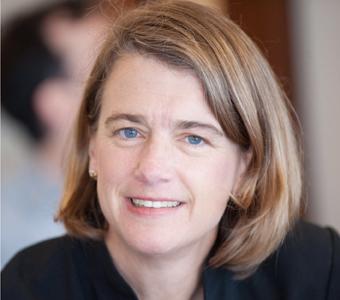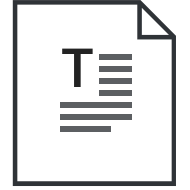Investing in women’s entrepreneurship is good for business and essential for economic growth – particularly in Covid-hit emerging markets. Liberty Specialty Markets’ Financial Risk Solutions team is committed to supporting the financial institutions on which women and SMEs depend. Edith Quintrell and Sam Wilde explain why.
COVID-19 has produced some stark statistics, and this is one of the starkest. According to leading business consultancy McKinsey & Co, women’s jobs are 1.8 times more vulnerable to the crisis than men’s jobs. While making up 39% of the global workforce, women account for 54% of overall job losses. In a world that has, according to some commentators, woken up to the difficulties that many women face in earning a living, data like this is hard to digest. Clearly, there’s still a long way to go on the road to true equality.
The length of that road is all too apparent when we consider small and medium-sized enterprises (SMEs), which are the key drivers of growth around the world. Many of these businesses are owned or led by women – around one-third, according to the International Finance Corporation (IFC) – yet women have less access to support, funding and resources than their male counterparts.
Adding to these challenges is the longer-term impact of the coronavirus pandemic. SMEs have taken a particularly hard hit during the current crisis. A recent sampling of 4,467 companies across 132 countries through the International Trade Centre’s COVID-19 Business Impact Survey illustrates that while SMEs tend to be more agile than larger companies, they face severe resource constraints, making them more vulnerable during a crisis of this magnitude. As the full economic impact of the pandemic unwinds over the next few years, SMEs’ size will make them particularly vulnerable when compared to the bigger corporates.
Role of insurance
Insurance has a significant role to play in helping SMEs and women-led businesses around the world through the sphere of international development finance. By working in partnership with the public sector, the Liberty Specialty Markets (Liberty) Financial Risk Solutions (FRS) division is seeking to reduce the financing gap that is hampering the prospects of so many female-led SMEs.
Globally, we have all seen a growing emphasis on environmental, social and governance-led (ESG) investment strategies. Through its public agency initiative, launched in 2016, Liberty’s FRS team has supported numerous multilateral development banks, development finance institutions and export credit agencies by providing much needed insurance capacity to enable these institutions to carry out their economic development and sustainability mandates. Essentially, we share the financial institutions’ risks which enable them to have an even greater impact by crowding in private sector capital to their lending programmes.
Partnership with IFC
One notable achievement under this initiative came in 2017 when Liberty became one of only two insurers to partner with the International Finance Corporation (IFC), the largest global development institution focused on private sector development and a sister organisation of the World Bank, in its first unfunded risk sharing program for long-term lending. IFC makes annual commitments of more than US$11bn to companies in emerging and frontier markets for its own account.
This new relationship saw Liberty provide credit insurance for new IFC loans to 30 banks in 17 countries under the Managed Co-Lending Portfolio Programme. The first deal under the scheme was announced in early 2018: Liberty insured a loan of US$185mn from the IFC to Vietnam International Bank (VIB). The loan was to support VIB’s lending to small-to-medium enterprises, micro-SMEs and affordable housing projects in Vietnam. Other projects supported by IFC under this program include a loan to a bank in Ghana that will be used to support SMEs and women in banking and another in Bangladesh to support a portfolio of green loans funding renewable energy and efficiency measures. The loans supported by insurance directly contributed to the Sustainable Development Goals: 67% expanded access to finance for small businesses, 47% strengthened climate resilience efforts, and 43% reached fragile and low-income countries.
Enabling the private sector
In 2018, Liberty and the U.S. International Development Finance Corporation (DFC), previously known as the Overseas Private Investment Corporation (OPIC), launched a risk-sharing agreement to facilitate private sector involvement in developing markets. Empowering women throughout the developing world is a core strategic initiative for the DFC and an important piece of Liberty’s partnership with the agency. Examples of projects supported by the DFC include a loan to finance women-led and owned micro, small and medium-sized enterprises in Ecuador and increasing the affordability of credit for women-owned SMEs in Paraguay.
In essence, this type of risk sharing agreement helps money reach end-users who need it most. The IFC notes that 60% of SMEs have unmet funding needs with many women-owned businesses in emerging markets struggling to attract loans from commercial banks. That is where the IFC, DFC and other publicly funded organisations can make a difference by providing much needed access to funding.
Positive outcomes
For Liberty, supporting development funding has hugely positive outcomes and fits perfectly with our core belief that progress happens when people feel secure. As a mutual, we are able to take a long-term view of our business – partnering with our clients on programmes that will be in place for 10-years or more. Our mindset aligns closely with that of our public agency clients, both in what we seek to do and how we aim to do it. Like us, public sector organisations don’t dip in and out of particular markets; instead, they are committed for the long-term to help their clients prosper.
These public-private partnerships also represent good business for us. Our public sector partners present us with business opportunities that we might not otherwise have seen. They are introducing us to new commercial clients in countries in which traditionally we have had a limited presence. We have confidence in their underwriting standards and due diligence as well as their historical track records, which show very good performance. This is due to their strong balance sheets and highly rated shareholders, as well as their knowledge of local markets and their physical presence in the countries in which they operate. Having a strong understanding of agencies’ mindsets and how they work has been critical to the success of this initiative.
Increasing activity
Liberty’s aim is to be even more active in this sector. We see further expansion of our activities with public agencies as an important part of our responsible business strategy. The future is bright in terms of partnering with the public sector to continue to promote socially responsible investment and sustainable development.
COVID-19 has undoubtedly made the situation harder for women-led SMEs, particularly in developing countries. Women around the world are not only facing routine business challenges but also an economically devastating pandemic. On-the-ground COVID-19 recovery work in 67 countries shows that women and girls have been hardest hit, due to previously existing inequalities that have been exacerbated by the pandemic. Maintaining economic support to them is vital. Public agencies have increased their lending during COVID-19 and our continued assistance has ensured that their impact has been – and will continue to be – maximised. The challenge now is to maintain that momentum and to use the insurance market’s financial muscle to help women lead the post-pandemic economic recovery.
First published in GTR+ Insurance 2020 www.gtreview.com



